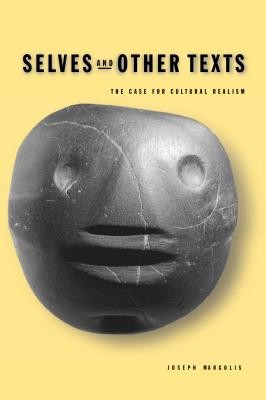
- We will send in 10–14 business days.
- Author: Joseph Margolis
- Publisher: Penn State University Press
- ISBN-10: 0271023457
- ISBN-13: 9780271023458
- Format: 15.2 x 23.3 x 1.6 cm, minkšti viršeliai
- Language: English
- SAVE -10% with code: EXTRA
Reviews
Description
Extending his well-known investigations into the nature and logic of art and history in the cultural world, Joseph Margolis here offers a sustained account of how selves and the cultural phenomena they generate (language, history, action, art) can be viewed as just as "real" as the physical nature from which they are emergent, while not being reducible to it. The book starts off with a review of prominent philosophies of art over the past half-century, focusing especially on Beardsley, Goodman, and Danto, so as to highlight the need for carefully distinguishing between the metaphysical and epistemological features of physical nature and human culture. The second part of the book builds on the first part's analyses of artworks to propose a theory of selves as "self-interpreting texts." Selves and Other Texts aims to develop new ways of understanding the conceptual inseparability of our analysis of physical nature and our analysis of ourselves.
EXTRA 10 % discount with code: EXTRA
The promotion ends in 22d.19:13:21
The discount code is valid when purchasing from 10 €. Discounts do not stack.
- Author: Joseph Margolis
- Publisher: Penn State University Press
- ISBN-10: 0271023457
- ISBN-13: 9780271023458
- Format: 15.2 x 23.3 x 1.6 cm, minkšti viršeliai
- Language: English English
Extending his well-known investigations into the nature and logic of art and history in the cultural world, Joseph Margolis here offers a sustained account of how selves and the cultural phenomena they generate (language, history, action, art) can be viewed as just as "real" as the physical nature from which they are emergent, while not being reducible to it. The book starts off with a review of prominent philosophies of art over the past half-century, focusing especially on Beardsley, Goodman, and Danto, so as to highlight the need for carefully distinguishing between the metaphysical and epistemological features of physical nature and human culture. The second part of the book builds on the first part's analyses of artworks to propose a theory of selves as "self-interpreting texts." Selves and Other Texts aims to develop new ways of understanding the conceptual inseparability of our analysis of physical nature and our analysis of ourselves.


Reviews